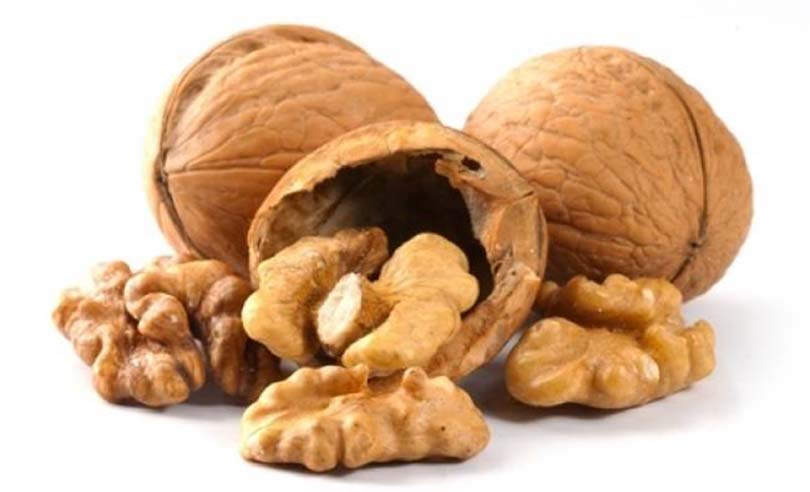Eat walnuts to keep the gut healthy
Thu 27 Jul 2017, 22:32:48

New Delhi , July 27 : A new study suggests that walnut consumption may be beneficial for digestive health by increasing the amount of good probiotic-type bacteria in the gut. Walnuts do this by acting as a prebiotic to help nourish and grow the bacteria that keeps the digestive system healthy. Researchers found that a diet with walnuts led to an overall significant increase in the diversity of bacteria in the gut.
"Gut health is an emerging research area, but we are seeing that greater bacterial diversity may be associated with better health outcomes, whereas low diversity has been linked to conditions such as obesity and inflammatory bowel disease," said Lead Researcher Lauri Byerley, PhD, RD Associate Professor of Research in the Physiology Department at Louisiana State University.
In this animal study, rats were randomly assigned to a diet containing ground walnuts, equivalent to about two ounces (1/2 cup) per day in humans, or a diet without walnuts for up to 10 weeks. Calorie and nutrient intake was similar between the two diet groups. Compared to those that did not consume walnuts, rats that ate a walnut-enriched diet saw an increase in beneficial bacteria including, Lactobacillus, Roseburia and Ruminococcaceae.
"The health of the gut is related to
overall health in the rest of the body," said Byerley. "Our study is showing that walnuts change the gut, which could help explain why there are other positive health benefits to eating walnuts such as heart and brain health."
overall health in the rest of the body," said Byerley. "Our study is showing that walnuts change the gut, which could help explain why there are other positive health benefits to eating walnuts such as heart and brain health."
The bioactive components of walnuts may be contributing factors in providing these health benefits. Walnuts are the only nut that contain a significant amount of alpha-linolenic acid (ALA), the plant-based omega-3 fatty acid (2.5 grams per one ounce) and also offer protein (four grams per one ounce) and fiber (two grams per one ounce).
Animal research is provided as background and used to inform future studies needed to understand the effect on humans. The results of this study shed light on a new way that walnuts may be beneficial for health, but more research is needed to understand how these outcomes translate to humans.
Funding for this research was provided by the California Walnut Commission (CWC) and American Institute for Cancer Research. The CWC has supported health-related research on walnuts for more than 25 years. While the CWC does provide funds and/or walnuts for various projects, the actual studies are conducted independently by researchers who design the experiments, interpret the results and write the manuscripts.
No Comments For This Post, Be first to write a Comment.
Most viewed from Health
AIMIM News
Latest Urdu News
Most Viewed
May 26, 2020
Do you think Canada-India relations will improve under New PM Mark Carney?
Latest Videos View All
Like Us
Home
About Us
Advertise With Us
All Polls
Epaper Archives
Privacy Policy
Contact Us
Download Etemaad App
© 2025 Etemaad Daily News, All Rights Reserved.






























